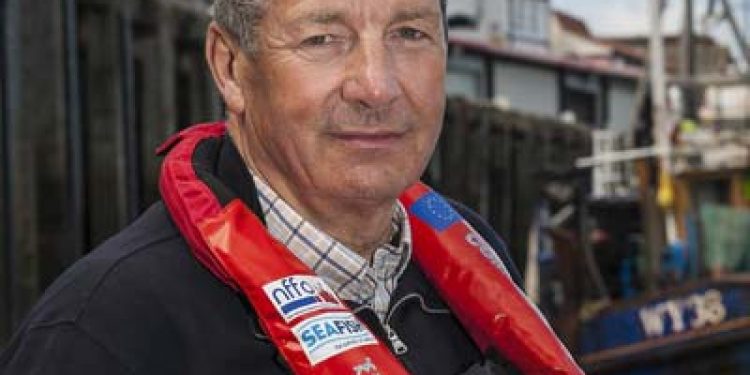Among many NFFO members who have been involved in a highly successful research initiative that has encouraged fishermen and scientists to work in partnership is current president, Arnold Locker, who comes from a third generation fishing family based in Whitby.
He has been actively involved with the publicly-funded Fisheries Science Partnership (FSP), which sees the fishing industry and science co-operate on improving fish stocks, the sea’s biomass and marine ecosystems, since it began, in 2003.
Arnold has over 40 years’ experience of commercial fishing in the North Sea and a skipper/owner for most of that time. Now the co-owner and chairman of Lockers Trawlers Ltd out of Whitby, he is awaiting completion of a fourth newly built vessel.
Lockers now trawls haddock exclusively, after taking the decision to avoid cod to help stocks recover – an exercise that has been supported by the FSP research its president has taken part in.
Arnold has had a strong interest in the FSP since it was first suggested in 2002, quickly seeing its potential for ushering in both the practical solutions and changed mindsets that would be vital for the long-term sustainability of the industry he has devoted his life to.
He said: “Scientists didn’t speak to fishermen and fishermen didn’t speak to scientists. Clearly, this was ridiculous, as both were needed for meaningful projects that would preserve the marine environment and improve its health where there were problems.”
The NFFO president was among the first fishermen to join scientific missions on Cefas’ purpose-built, £25m ocean-going research vessel, crewing on the Cefas Endeavour for 30-day trawls to compare catch rates with different trawling gear, including his own. He then accompanied the Endeavour , while one of his vessels fished alongside, trialling such subsequently adopted cod avoidance techniques as larger net sizes, various mesh grades and panelling in different parts of the netting. In addition, he enlisted colleagues in Whitby and Grimsby to the six-year project.
The result has been that they can now avoid cod, with a discard rate of less than one per cent verified by onboard CCTV. Also, they only take larger sizes of haddock that have first had the chance to reproduce, with smaller fish able to escape the wider meshes.
Recently the International Council for Exploration of the Sea (ICES) has confirmed that fishing mortality rates have declined dramatically over the last decade, after some 70 years of incremental increases. In some stocks, including cod and haddock, mortality has been halved.
The fall in fishing pressure coincides closely with FSP activity and an array of cod recovery measures applied by EU fleets.
And Arnold believes that this international effort results from the campaign’s most crucial plank; its influencing attitudes and behaviours. “The FSP has inspired several other EU nations to establish their own versions, working with us and sharing data, research techniques and practical ideas. Most prominent among these have been fellow North Sea stakeholders, Germany and Denmark.”
NFFO chief executive, Barrie Deas, said: “Patently, the FSP has been a hugely beneficial programme, with techniques trials and research clearly contributing to reviving once vulnerable fish stocks. Such recoveries and sustaining them are of great environmental and economic significance, with fisheries and science sharing the common aim of harvesting from viable populations in healthy ecosystems.
“Having established the marvellous working partnership that has done so much to boost understanding and achieve sound, non-wasteful fishing practice, it is vital that the government ensures that the good work continues. This it can do with continued funding and encouragement and an ongoing education programme on the FSP’s successes to date.”
FiskerForum.com









